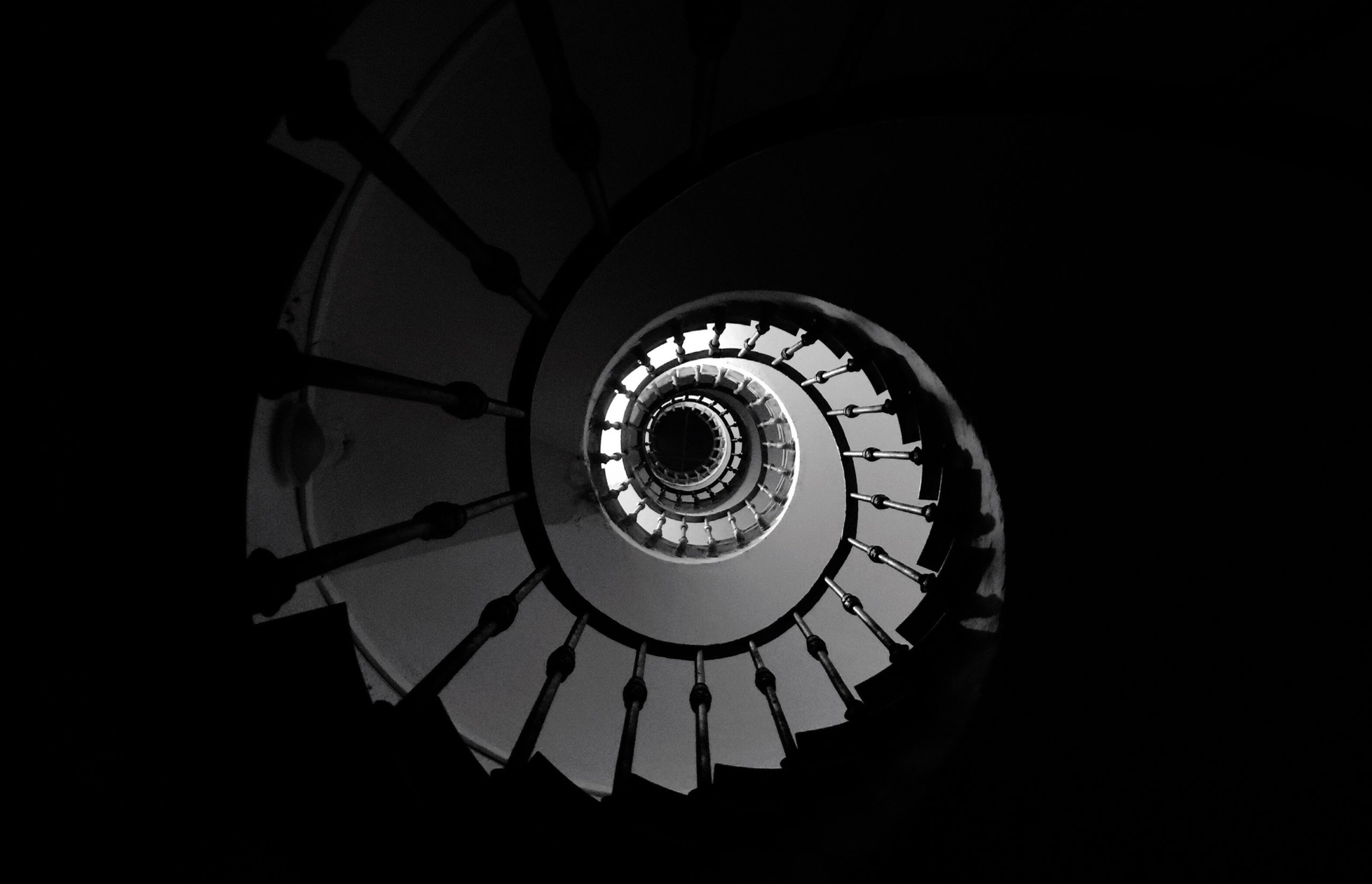Practice what you preach: Religious leaders as role models
Practice what you preach: Religious leaders as role models
Should religious leaders be seen as role models? What are the positives and challenges in viewing them as such?
For centuries, leaders from across world religions have often been held up as examples of virtue, piousness, and wisdom. Whether elected via divine intervention or granted their position by fellow believers, many within religious communities view their religious leaders as the ultimate role model – the person they turn to for all forms of guidance and whom they try to emulate in their daily lives.
However, as the world is regularly reminded, religious leaders are also human beings like the rest of us and are not immune to flaws and wrongdoing. Due to this, and several other reasons that will be discussed in this article, is it right to view religious leaders as role models? What are the risks involved with idolising a person with such power and influence? Yet, perhaps we should not approach all religious leaders with scepticism and instead acknowledge those who act as positive examples of faith.
What does it mean to be a religious leader?
To begin with, assessing what it means to be a religious leader in different faith communities may shape how we understand the religious leader-role model relationship. What it means to be a religious leader certainly varies from one religion to the next. In Islam and Judaism, there are similarities in the role of the imam and rabbi; both are trained in their respective scriptural studies and lead worshippers in prayer.[1] [2] Rabbis are often teachers as well as leaders[3] but both imams and rabbis offer spiritual and personal advice and are respected members of their faith community.[4] [5]
Leaders in other religions such as Christianity and Buddhism possess many of these aforementioned roles. However, in both Buddhism and Catholicism, the appointment of the most prominent religious leaders (the Dalai Lama and the pope respectively) involves some element of divine intervention.[6] [7] Moreover, unlike in Islam, Judaism, and Protestant denominations, in Buddhism and Catholicism, the practice of sexual celibacy is an obligation for religious leaders.[8] [9]
Positive examples of faith
With an increase in news headlines detailing the fall from grace of some religious leaders, it is important to highlight examples of religious leaders who act as positive examples of faith and justify the title of role model for many believers.
In Christianity, there exists the concept of servant leadership. This form of leadership is modelled by Jesus as he ‘grew and developed the disciples into the leaders of his Church’.[10] The primary concern of the servant leader is service to their followers; attention is paid to helping those in need rather than glorifying the leader.[11]
Such leadership has been demonstrated by leaders from a variety of faith communities, especially throughout the coronavirus pandemic. Acts of goodness include the local pastor in Milton Keynes, UK, who runs a local food bank that supports up to 7,000 a year[12] or the imam in Birmingham whose mosque became the first to be used as a COVID-19 vaccination centre.[13] Moreover, one of Britain’s youngest imams says he started using social media “to help [people] be the best person that they can be every single day.”[14] This desire to put the needs of others before one’s own can be inspiring to many and result in such religious leaders being seen as role models.
Beyond helping on a more local level, there are many examples of religious leaders who speak up for social justice and environmental activism on a national or international basis, earning them the title of role models. This includes the 40 representatives of various religious communities who signed an appeal in October 2021 which demands the massive reduction of CO2 emissions,[15] or the rabbis who urged UK Prime Minister Boris Johnson to not “undermine” basic freedoms when reviewing the Human Rights Act in June 2021.[16]
The threat of the cult of personality
However, while there are many selfless religious leaders, at times, some leaders become too focused on their power rather than their obligations to believers.
What happens when religious leaders are given too much power? Sometimes, a cult of personality – defined as “exaggerated devotion to a charismatic political, religious, or other leader”[17] – arises. This concept developed from sociologist Max Weber’s (1864-1920) idea of charismatic authority, a state where “an individual personality … is considered extraordinary and treated as endowed with supernatural, superhuman or at least especially exceptional powers or qualities.”[18]
Indeed, some religious leaders have been seen in such a light, either by their own encouragement or due to the dedication of their followers. For example, in the Christian denominations of Pentecostalism and Evangelicalism, the role of the leader is crucial and often they become idealised and deeply revered.
While a cult of personality is not inherently a bad thing, it can distract believers from focusing on their own spiritual development and commitment to God. To exemplify this it is helpful to look at Menachem Mendel Schneerson (1902-1994), an American Orthodox rabbi and the most recent rebbe of the Lubavitch Hasidic dynasty, who was known as one of the most influential Jewish leaders of the 20th century.[19] However, a fringe subset of the Chabad Jewish community believed that Rebbe Schneerson was the Jewish messiah.[20] Rabbi Norman Lamm, one of the leading figures of the modern Orthodox movement, criticised this contention and felt that viewing him as the messiah “distorted” the rebbes’ teaching.[21]
In some more extreme cases, the control of and infatuation with a religious leader can have devastating consequences for believers. The self-confessed prophet who would sexually abuse congregants during ‘spiritual baths’ while claming he was being instructed by God is an example of this.[22]
Promoting hate not love
Alongside the threat of the cult of personality, there are religious leaders who advocate for hate, prejudice, or narrow mindness, rather than social justice and equality. These types of religious leaders have specifically grabbed headlines during the coronavirus pandemic, such as the UK pastor who sold ‘divine plague protection kits’ for almost £100 as a COVID-19 cure[23] or the rabbi who believed COVID-19 was a punishment for the acceptance of homosexuality.[24]
However, nothing has brought into question the religious leaders-role model relationship as much as the revelation of sexual abuse among different religious traditions. Prominent leaders such as Cardinal Hans Hermann Groër,[25] Indian guru Swami Premananda,[26] and Rabbi Ezra Sheinberg[27] have all been accused and prosecuted for sexually abusing believers. Furthermore, the publication of the 2021 report conducted by the Independent Commission on Sexual Abuse in the Church (CIASE) deduced that between 1950-2020, about 216,000 minors in France had been victims of abuse at the hands of a consecrated person (priest, deacon or religious brother and sister).[28] Such examples go against everything a religious leader should be and highlight the danger of idolising people just because they hold a leadership position.
Unrealistic expectations
Undoubtedly, religious leaders who have committed sexual abuse, or any other crime, must be punished and condemned for their actions. However, for those leaders who have been shamed for less serious errors, it is important to consider the role the wider hierarchy of a religious organisation plays in setting the rules. For example, several high-profile religious leaders have been denounced after breaking celibacy rules, including the recent resignation of the Archbishop of Paris, Michel Aupetit.[29] Should such individuals have to step down after breaking these rules? Are these rules unreasonable? Even if such a rule is broken, does that mean one should no longer be a leader, or indeed, a role model?
This article has analysed the different ways in which religious leaders can be seen as role models, as well as examples of when leaders are not positive examples of faith. Whether one agrees or disagrees with the idea of religious leaders as role models, it is important to remember that leaders are human beings with strengths and flaws like anyone else. While examples of abuse and hatred must be emphatically condemned, consideration of the leader’s background and wider hierarchical context may help to understand the complexity of what it means to be a religious leader.
Want to learn more about similar topics? Go to the EARS Dashboard and receive weekly updates.
Sources
[1] What Is the Role of the Imam in Islam?
[2] The Role of the Rabbi in the Jewish Community
[3] The Role of the Rabbi in the Jewish Community
[4] What Is the Role of the Imam in Islam?
[5] The Role of the Rabbi in the Jewish Community
[6] Dalai Lama: a spiritual leader who is found, not chosen | Tibet | The Guardian
[7] Conclave: How cardinals elect a Pope – BBC News
[8] brahmacharya | Buddhism | Britannica
[9] Roman Catholic priests have been celibate for a thousand years – but this could change – Connecting Research.
[10] Jesus: The Role Model for Christian Leadership – One Another Ministries
[11] Jesus: The Role Model for Christian Leadership – One Another Ministries
[12] Covid: ‘Massive increase’ in Milton Keynes food bank users – BBC News
[13] Birmingham mosque becomes UK’s first to offer Covid vaccine – BBC News
[14] The young imam using Instagram to change opinions – BBC News
[15] Weltreligionen rufen gemeinsam zu mehr Klimaschutz auf
[16] 14 rabbis, Jewish campaigners urge Boris Johnson not to review Human Rights Act | Jewish News
[17] cult of personality – APA Dictionary of Psychology
[18] What Is a Cult of Personality?
[19] Thousands Beat Path to Queens Cemetery to Remember a Jewish Leader
[20] Rebbe, the Messiah, and the Scandal of Orthodox Indifference
[21] Scholars debate Rebbe’s legacy – The Jerusalem Post
[22] Self-styled prophet, 60, raped church members in ‘spiritual baths’ and claimed he was being instructed by God
[23] Pastor ‘sold divine plague kits to protect from Covid’ | News | The Times
[24] Israeli rabbi: Coronavirus outbreak is divine punishment for gay pride parades | The Times of Israel
[25] A cardinal is accused: the Groer case | National Catholic Reporter
[26] Premananda gets life sentence
[27] Safed rabbi jailed for multiple counts of sexual assault to get early release | The Times of Israel
[28] France: The Sauvé Report or the Abuse of the Abuse (1) – FSSPX.Actualités / FSSPX.News
[29] Ex-archbishop Michel Aupetit denies affair with virgin | World | The Times






